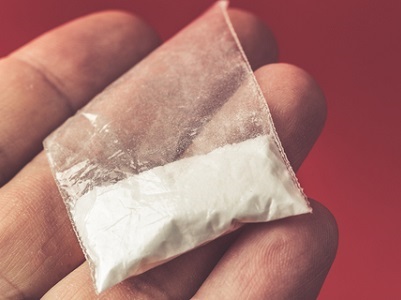
Not surprisingly, scientists at RMIT University in Australia recently tested illicit drugs purchased online and found that around 35% were not what was advertised, increasing the risk of unwanted side effects, overdose and death.
This study Drug and Alcohol ReviewsThe researchers analyzed 103 illegal drug samples obtained from the now-defunct dark web forum Test4Pay.
65% of samples contained only the advertised substance, 14% mixed the advertised substance with other psychoactive or potentially harmful chemicals, while 21% of samples did not contain any advertised substance.
MDMA, methamphetamine, and heroin were consistently found to contain only the substances advertised; however, products sold as ketamine, 2C-B, and alprazolam were most likely to have been replaced entirely with other substances or new synthetic drugs. Of the 19 cocaine samples tested, only four were pure cocaine, 13 contained other substances, and two samples contained no cocaine at all.
Lead researcher Monica Barratt, RMIT Vice-Chancellor's Senior Research Fellow, said the results were concerning because drugs sold through cryptomarkets – online sellers on the dark web – were initially thought to be less likely to be mixed or substituted with other substances.
“Because crypto markets allow anonymous buyers to review their purchases, in theory merchants selling lower quality products are more likely to receive bad reviews, thereby benefiting merchants selling superior products,” Barratt said. “However, despite this awareness, our findings show that banned substances purchased on crypto markets are still vulnerable to counterfeiting and substitution.”
In any case, the Test4Pay dark web crypto market is no longer an issue, as it is now defunct, but when one is shut down, others usually spring up. Still, evolving technology appears to be driving people away from using the dark web. According to a 2023 National Ecstasy and Related Drugs Reporting System survey, the number of people buying drugs on the dark web has slightly decreased, while more people are turning to messaging and social media apps to obtain drugs.
Harm reduction services and safe injection sites
Barratt says the launch of more drug testing services is more urgent than ever as Australians find new ways to obtain illegal drugs. Currently, the only drug testing service available in Australia is CanTEST, with Queensland due to launch its own service later this year, and Victoria considering following suit.
Drug testing services have operated around the world for more than 50 years, but Australia has still resisted expanding harm reduction services, Mr Barratt said.
“Australia is resistant to opening drug testing facilities because it believes that drug testing gives people 'permission' to use drugs,” Barratt says. “Drug testing services would never tell consumers that a drug is 'safe' because drug use is not 100% safe. What a service can do is explain the known risks of particular drugs in a credible, non-judgmental way, and enable drug users to adjust their behaviour to reduce their risks.”
This thinking is mirrored in much the same way in the United States when it comes to the establishment of safe injection facilities, which provide drug users with sterile equipment and supervision to prevent overdose.
The governors of California and Vermont both vetoed bills that would have allowed safe injection sites to open in their states in 2022, and the Pennsylvania senate voted to ban such sites altogether in 2023.
In fact, the only government-sanctioned supervised safe injection site in the United States opened in New York City in November 2021. Nonprofit OnPoint NYC runs two sites in East Harlem and Washington Heights.
Last month, the city of Providence, Rhode Island, approved the state's first safe injection site, the only one operating so far outside New York City. Minnesota is the only state to have approved such a site, but none have yet opened there.
In May 2023, the U.S. government awarded New York University and Brown University a four-year, $5 million grant to study two sites in New York City and one in Providence. Researchers hope to enroll 1,000 adult drug users and study the impact of these sites on overdoses, estimate costs, and measure potential savings to the health care and criminal justice systems. The grant marks the first time the U.S. government has funded a study on safe injection sites.

